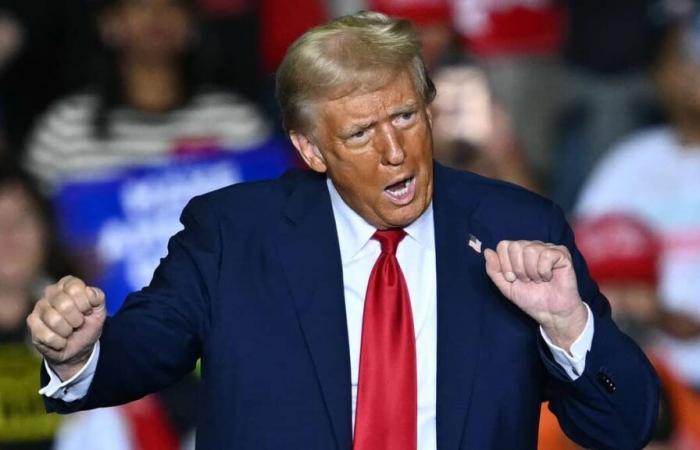A true political earthquake, Donald Trump’s victory in the American presidential election now heralds significant economic changes. Should you modify your investment portfolio accordingly?
• Also read: Election of Trump: 3 TRILLION richer on the stock market, it’s crazy!
• Also read: The smart investor: make money with the best Quebec managers
• Also read: In the eye of Quebec Inc.: Garda boss is worth $3.6 billion
The short answer is no, says Maxime Dubé, portfolio manager at Claret Investment Management, without hesitation.
“There is still a lot of noise around the American election. But the party in power is one variable among many others. The conclusion is that there are no radical changes to be made in our portfolios,” he explains.
Maxime Dubé
Photo Claret
“If every time we see a piece of news, we throw away our wallet, it doesn’t make sense,” insists the specialist.
If you are disappointed with Kamala Harris’ defeat, “don’t let emotions get in the way of good investment decisions,” RBC warns in a recent note.
Good or bad for the markets?
Generally speaking, economists believe that Mr. Trump’s promises of tax cuts and deregulation are likely to stimulate the American economy, but that his threat to impose tough tariffs risks having the effect reverse. It is therefore difficult to predict what effect all this will have on the stock markets.
Investors were quick to put on their rose-colored glasses. In the days following the November 5 election, the securities of banks and oil companies, among others, performed well.
Mr. Dubé, however, recalls that, during the latter’s first term, oil stocks recorded a lower return than during Mr. Biden’s presidency. For what? Because in 2020, the pandemic caused oil demand to plummet. Then, in 2022, the war in Ukraine caused crude prices to jump.
In short, “Washington can have a positive or negative influence on the economic cycle, but it does not control it,” summarizes the RBC.
What exposure in the US?
The sole election of Mr. Trump should therefore not encourage us to increase or decrease our exposure to American markets. Like other managers, Mr. Dubé uses this rule as a guide for the geographic distribution of a stock portfolio: 40% in the United States, 40% in Canada and 20% in the rest of the world.
Regardless of the outcome of the American election, some are tempted to favor Canada and the rest of the world for the simple reason that American stock markets have experienced enormous returns in recent years.
Over five years, the American S&P 500 has gained around 90%, compared to 50% for the Toronto Stock Exchange and 20% for the markets of other developed countries.
Maxime Dubé, however, believes that the American stock markets still have room to continue their growth if the decline in interest rates continues.
According to him, Donald Trump could moderate his ardor if he sees that his decisions are causing the markets to plunge.
“It is in his interest that the stock market performs well,” he maintains. “I imagine that he will not want to leave the mark, after 4 years, of the one who crushed the American economy and the American stock market.”
Do you have any information to share with us about this story?
Write to us at or call us directly at 1 800-63SCOOP.






